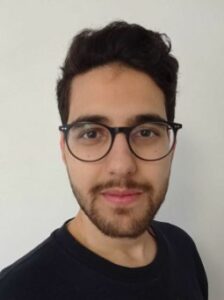 Ismail AMESSEGHER is a PhD student at IMT Atlantique and Crossing laboratory since 1st Nov. 2022, working on the joint design of compression techniques for deep neural networks and low-energy processors for event-based computer vision. His work is funded by AI@IMT (French National Research Agency PhD program). In 2017, after high school studies in Morocco, he moved to France and joined the National Institute of Applied Sciences (INSA) in Rennes where he completed two years of integrated preparatory classes. Then, he specialized in electronics and industrial computing from 2019 to 2022. In July 2021, he did his first internship in France at CSTB Nantes on embedded system projects with the PULSE laboratory, where he continued as an apprentice engineer until August 2022. During this period, he worked on two projects: the first is about developing an acquisition station for measuring thermal comfort in-situ at the DOM and the second consists in modelling and developing a station of acquisition and mobile control for physio-sensory studies. In 2022, he received an MEng in the field of electronics and industrial computing form INSA Rennes.
Ismail AMESSEGHER is a PhD student at IMT Atlantique and Crossing laboratory since 1st Nov. 2022, working on the joint design of compression techniques for deep neural networks and low-energy processors for event-based computer vision. His work is funded by AI@IMT (French National Research Agency PhD program). In 2017, after high school studies in Morocco, he moved to France and joined the National Institute of Applied Sciences (INSA) in Rennes where he completed two years of integrated preparatory classes. Then, he specialized in electronics and industrial computing from 2019 to 2022. In July 2021, he did his first internship in France at CSTB Nantes on embedded system projects with the PULSE laboratory, where he continued as an apprentice engineer until August 2022. During this period, he worked on two projects: the first is about developing an acquisition station for measuring thermal comfort in-situ at the DOM and the second consists in modelling and developing a station of acquisition and mobile control for physio-sensory studies. In 2022, he received an MEng in the field of electronics and industrial computing form INSA Rennes.
Aside from his studies, Ismail has been an active member of the robot club of INSA. In October 2020, he participated along his club in the French robotics cup in which they were qualified for the finals and were ranked 12th in the tournament.
Matt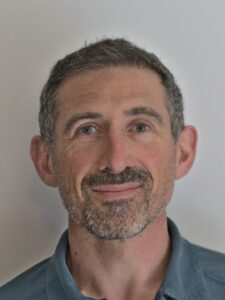 hieu ARZEL is Professor in Electrical Engineering at IMT Atlantique, in Brest, France, and he is leader of the LEASARD project.
hieu ARZEL is Professor in Electrical Engineering at IMT Atlantique, in Brest, France, and he is leader of the LEASARD project.
He is a member of the Department of Mathematical and Electrical Engineering, where he is Deputy Head in charge of the teaching activities and member of the Teaching Steering Committee of IMT Atlantique.
He is also a member of Lab-STICC, CNRS UMR 6285, team Algorithms and Architectures Interactions (2AI).
He obtained an engineering degree in Telecommunications from ENST Bretagne and an MSc in Electronics from the University of South Brittany (UBS), both in 2002. Then, he received a PhD degree from Telecom Bretagne in 2006 and the accreditation to supervise research (HDR) in 2021 from UBS.
He worked from 2005 to 2006 as Research Engineer with TurboConcept, where he designed modules for synchronization and error correction in digital receivers on FPGA. In November 2006, he joined Telecom Bretagne as Associate Professor in the Department of Electronics Engineering. In 2017, Telecom Bretagne and Mines de Nantes were merged into IMT Atlantique where Matthieu Arzel is Full Professor since 2021.
His fields of expertise are iterative processing techniques for digital communications and analogue/mixed integrated circuit (ASIC) architectures and low-power flexible Systems on Chip in the fields of digital communications, medical engineering and artificial neural networks.
He has been principal investigator and manager of 18 research projects funded by institutions and companies. He supervised 12 PhD students and is now supervising 6 PhD students in the fields of satellite communications, data security and deep neural network accelerators design.
A more detailed CV is available at https://www.imt-atlantique.fr/fr/personne/matthieu-arzel.
 Jean-Philippe DIGUET is a CNRS director of research and director of CROSSING (FrenCh-AustRalian LabOratory for HumanS / AutonomouS Agents TeamING) IRL CNRS 2010 in Adelaide, Australia.
Jean-Philippe DIGUET is a CNRS director of research and director of CROSSING (FrenCh-AustRalian LabOratory for HumanS / AutonomouS Agents TeamING) IRL CNRS 2010 in Adelaide, Australia.
He received the Ph.D. degree from Rennes University (France) in 1996. In 1997, he has been a visitor researcher at IMEC (Belgium). He has been an associate professor at UBS University (France) until 2002. In 2003, he co-funded the Dixip company in the domain of wireless embedded systems. From 2004 to 2020, he was a CNRS researcher at Lab-STICC, where he has been heading the MOCS team until 2016 and the SHAKER team until 2020. He has been a visitor researcher at the University of Queensland, Australia in 2010 and an invited Prof. at Tohoku University, Japan in Nov. 2014 and May 2019, and at Univ. of São Paulo, Brazil, in Nov. 2016.
From 2018 to 2020, he was head of the transverse research program Systems of Drones at Lab-STICC. Since Sep. 2020, he has been adjunct prof. at the School of Computer Science of the University of Adelaide.
His current work focuses on various aspects of embedded system design: Embedded Systems (hardware / software applications co-optimization), Advanced (in-memory, hybrid NoC, reconfigurable) System On Chip dedicated to application domains (Image, Neuromorphic, …), Embedded Intelligence: Self-Adaptive Systems (Energy/QoS-based reconfiguration), Autonomous Systems (online decision making).
A more detailed CV is available at http://crossing.cnrs.fr/staff/diguet.
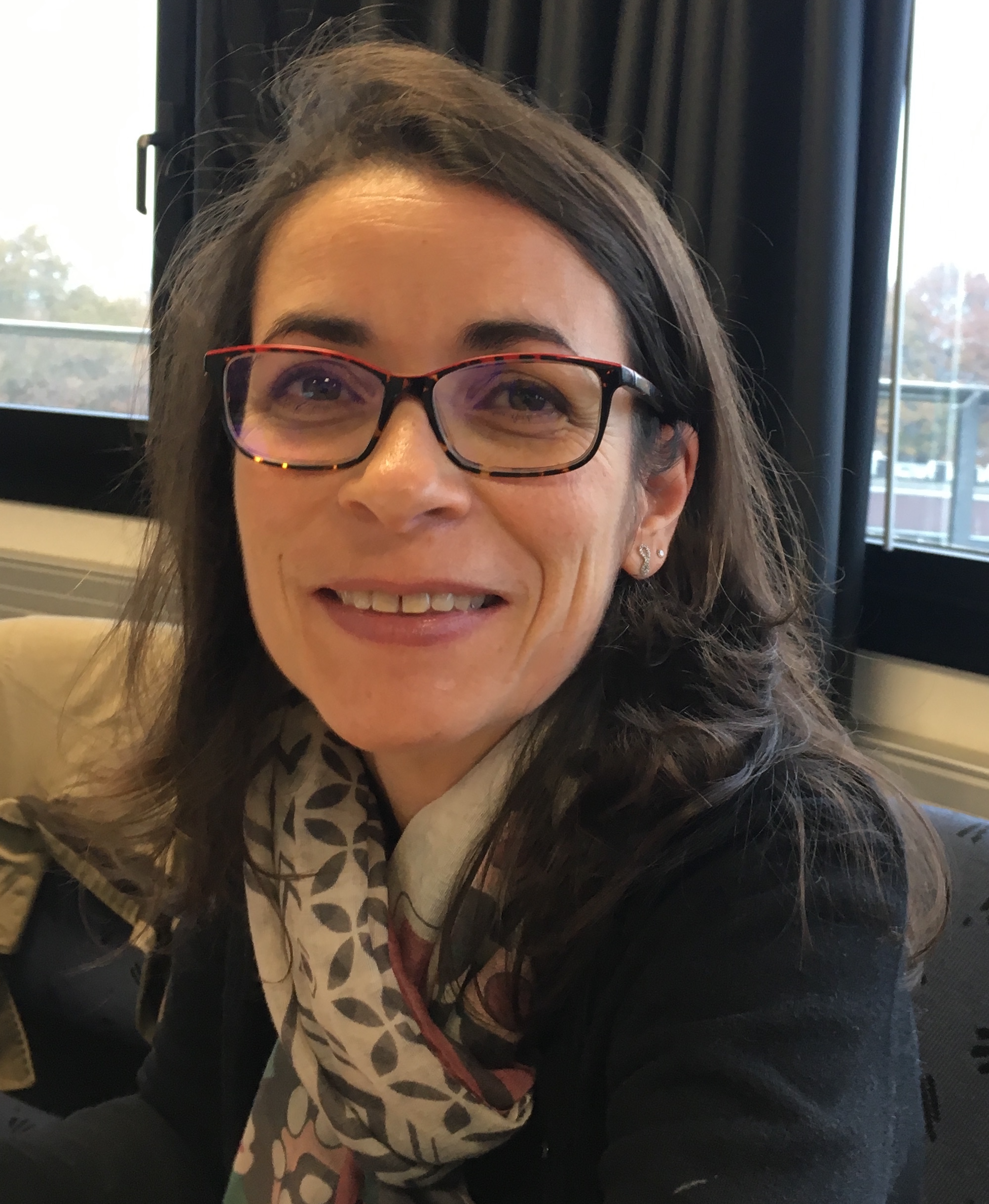 Isabelle FANTONI is CNRS Senior Researcher at LS2N laboratory since September 2017, in Nantes, France, deputy head of the ARMEN team (Autonomous Robots and Control of Interactions with the Environment).
Isabelle FANTONI is CNRS Senior Researcher at LS2N laboratory since September 2017, in Nantes, France, deputy head of the ARMEN team (Autonomous Robots and Control of Interactions with the Environment).
She received the PhD degree, with the European label, in Non-linear Control for Underactuated Mechanical Systems, in 2000 from the University of Technology of Compiègne (UTC), in France. Between October 2001 and August 2017, she was a permanent Researcher at Heudiasyc laboratory, UTC, in Compiègne, France, employed by the French National Centre for Scientific Research (CNRS) and since October 2013, CNRS Senior Researcher. Since September 2017, she moved to the LS2N laboratory.
Her research interests include non-linear control, modelling and control for Unmanned Aerial Vehicles (UAVs), fault-tolerant control for UAVs, navigation of aerial vehicles, cooperation of UAVs, heterogeneous robotic systems in cooperation, control of multi-drone grasping systems and flying parallel robot.
She has been investigator of several research projects on UAVs (1 FUI, local investigator for 3 ANR) and participating to several other ones. She was scientific adviser in Robotics at the Institute INS2I of the CNRS, between January 2016 and February 2019. She is the deputy head of the GdR Robotique since 2020. She is member of the “Comité National” of the CNRS since September 2021 for five years.
She supervised 17 PhD students and is now supervising 3 PhD students in the fields of control, observation, navigation of UAVs and multi-drone systems.
A more detailed CV is available at https://pagesperso.ls2n.fr/~fantoni-i.
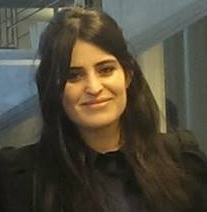 Hajer FRADI received the engineering and the master’s degrees in computer science from the National School of Computer Sciences, Manouba, Tunisia, in 2009 and 2010, respectively. In 2014, she received the Ph.D. degree in image and signals from TELECOM ParisTech, Paris, France.
Hajer FRADI received the engineering and the master’s degrees in computer science from the National School of Computer Sciences, Manouba, Tunisia, in 2009 and 2010, respectively. In 2014, she received the Ph.D. degree in image and signals from TELECOM ParisTech, Paris, France.
She was a Post-Doctoral Fellow with the Multimedia Communications Department, EURECOM, Biot, France. After that, she was a Research Engineer with VisionLab, Palaiseau, France, a CEA–THALES joint laboratory. She was an assistant professor at the University of Sousse and a Senior Researcher at the Laboratory of Advanced Technology and Intelligent Systems (LATIS), from 2016 to 2022 in Tunisia.
Her research studies include computer vision and deep learning with specific interests in video surveillance and robotic applications.
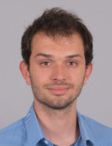 Lucas GRATIVOL RIBEIRO is a PhD student at IMT Atlantique, in Brest, and at the Laboratoire Hubert Curien, Université Jean Monnet Saint-Étienne, in Saint-Étienne, France.
Lucas GRATIVOL RIBEIRO is a PhD student at IMT Atlantique, in Brest, and at the Laboratoire Hubert Curien, Université Jean Monnet Saint-Étienne, in Saint-Étienne, France.
He is also a member of Lab-STICC and working on the co-design of deep neural networks and hardware architectures, in the context of Federated Learning adapted to embedded hadware.
He received a bachelor degree in electrical engineering in 2020 from PUC-Rio, Rio de Janeiro, Brazil, a Master of Engineering with specialization in hardware design and an MSc in embedded systems and digital electronics in 2020 and 2022, respectively, from IMT Atlantique, in Brest, France.
![]() Mathieu LÉONARDON received the M.Sc. degree from Bordeaux INP, Bordeaux, France, in 2015. He received the Ph.D. in electronics engineering from Polytechnique Montréal, Canada, and from the University of Bordeaux, France, in 2018. He joined IMT Atlantique, Brest, France as an Associate Professor in 2020.
Mathieu LÉONARDON received the M.Sc. degree from Bordeaux INP, Bordeaux, France, in 2015. He received the Ph.D. in electronics engineering from Polytechnique Montréal, Canada, and from the University of Bordeaux, France, in 2018. He joined IMT Atlantique, Brest, France as an Associate Professor in 2020.
Currently, he is a member of the CNRS Lab-STICC, UMR 6285. His research interests encompass algorithmic and architectural aspects of signal processing algorithms. More generally, he is interested in the hardware and software implementation of computationally intensive algorithms in real-time environment.
A more detailed CV is available at https://mathieuleonardon.com.
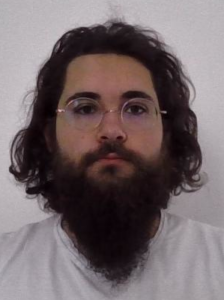 Hugo LE BLEVEC is a PhD student at IMT Atlantique, in Brest, France, in the Department of Mathematical and Electrical Engineering. He is also a member of Lab-STICC and working on the co-design of deep neural networks and hardware architectures. He graduated IMT Atlantique in 2020 with a Master of Engineering with specialization in hardware design, and an MSc in embedded systems and digital electronics. From 2018 to 2019 he did his first internship at WideNorth in Oslo, Norway, on a FPGA design for a wideband channel emulator for a satellite modem as part of an ESA project. Then, he specialized in FPGA-embedded deep neural networks for machine vision through a research internship for his master’s studies at IMT Atlantique.
Hugo LE BLEVEC is a PhD student at IMT Atlantique, in Brest, France, in the Department of Mathematical and Electrical Engineering. He is also a member of Lab-STICC and working on the co-design of deep neural networks and hardware architectures. He graduated IMT Atlantique in 2020 with a Master of Engineering with specialization in hardware design, and an MSc in embedded systems and digital electronics. From 2018 to 2019 he did his first internship at WideNorth in Oslo, Norway, on a FPGA design for a wideband channel emulator for a satellite modem as part of an ESA project. Then, he specialized in FPGA-embedded deep neural networks for machine vision through a research internship for his master’s studies at IMT Atlantique.
From July to December 2022, he works as a PhD intern in the Xilinx Research Labs at AMD site in Dublin to contribute on the FINN project. His current research focuses on FPGA design of semantic segmentation networks through specialized hardware implementation frameworks.
 Guillaume MOREAU is professor in Computer Science at IMT Atlantique, Brest campus, in France. His research interests are Virtual and Augmented Reality, within the Lab-STICC lab. He is currently Deputy Dean for Research and Innovation at IMT Atlantique.
Guillaume MOREAU is professor in Computer Science at IMT Atlantique, Brest campus, in France. His research interests are Virtual and Augmented Reality, within the Lab-STICC lab. He is currently Deputy Dean for Research and Innovation at IMT Atlantique.
Before this, he obtained an engineering degree in Computer Science in 1995 from ENSIEE. As a civil servant from ENS Rennes he did his PhD studies at IRISA lab where he graduated in 1998. After an industrial postdoc in the same team, he obtained a position at Mines Paris (1999-2002). Eventually he moved to Centrale Nantes as an Associate Professor in 2002 and full professor in 2011. In 2020, he was hired by IMT Atlantique.
He has been invited professor several times at Keio University in Japan. He has been the General chair of IEEE ISMAR (the main scientific event in Augmented Reality) which he organized in Nantes in 2017. In 2021 and 2022, he is Program Chair for this international event. He has supervised 20 PhD students to date.
A more detailed CV is available at https://guillaumemoreau.github.io/ .
 Panagiotis PAPADAKIS received a Ph.D in Information Technology from the University of Athens, Greece, in 2009 and is Associate Prof. at IMT Atlantique Bretagne/Pays de la Loire, Department of Informatics, since 2016 and co-leader of team RAMBO, Lab-STICC, UMR 6285.
Panagiotis PAPADAKIS received a Ph.D in Information Technology from the University of Athens, Greece, in 2009 and is Associate Prof. at IMT Atlantique Bretagne/Pays de la Loire, Department of Informatics, since 2016 and co-leader of team RAMBO, Lab-STICC, UMR 6285.
His main research interests lie in the fields of Robotic Vision and Navigation with emphasis on applications related to robotic service assistance technologies. He was the UGV pilot of the team that was dispatched to the earthquake-hit area of Emilia Romana in Italy in 2012, which was the pioneering mission of a human-robot team for Urban Search & Rescue in Europe. He is also the (co)author of several top-tier publications in computer vision and robotics journals/conferences.
A more detailed CV is available at https://sites.google.com/site/pgpapadakis.

